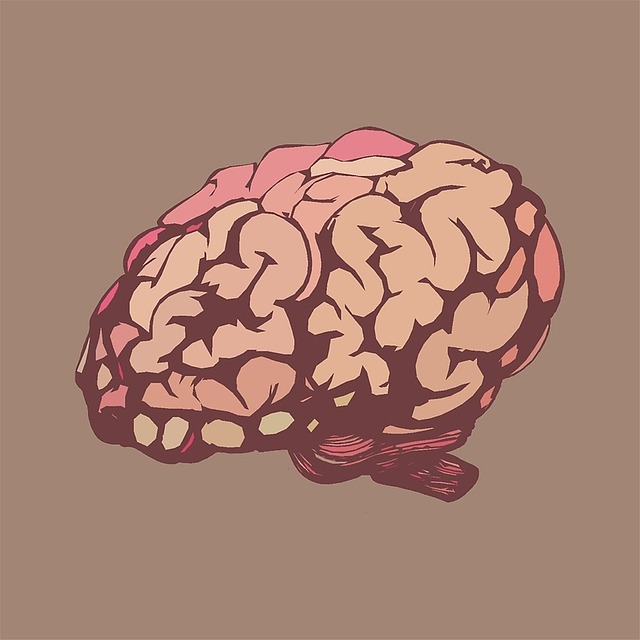“Brain rot” messing with your mental clarity? Don’t worry—you’re not alone; we’re here to help clear the fog! Over the past year, the term “brain rot” has been thrown around on social media like confetti at a parade. But what does it truly mean? Here’s a hint—it’s probably not the medical condition you’re imagining, but that doesn’t mean it doesn’t matter.
This blog dives into the origins of the term “brain rot,” why it’s found a new home in linguistics and mental health discussions, and how it reflects and even shapes our modern-day struggles with mental health. Strap in for a playful yet insightful ride!
What Even Is Brain Rot?
First things first—what is “brain rot”? Did your neurons start growing moss? Nope! It’s time to grab your metaphorical detective hat. “Brain rot” is the latest trendy way to describe when your brain feels foggy, overloaded, or stuck in a loop of unproductive (or unhealthy!) thoughts.
The phrase was born in internet culture, gaining momentum as individuals began casually calling out the effects of constant scrolling, doomscrolling, binge-watching, and social media dopamine overload. Can you relate to the 2 a.m. TikTok spiral where hours vanish while you watch people make oddly comforting cakes or explain obscure historical events? Guilty as charged.
While it’s used lightheartedly, the phenomenon itself shines a light on a serious topic—how digital consumption habits impact our mental health. Ignoring this could lead to burnout, self-doubt, and detachment from reality. And we’re here to not let that happen.
Why the Oxford Stamp Is a Big Deal
The term “brain rot,” once slang spilling from meme pages or Reddit threads, caught the attention of none other than the Oxford English Dictionary (OED). You know something’s hit cultural relevance when the Oxford scholars want to define it. Recently, they acknowledged “brain rot” as part of the linguistic evolution capturing our digital-age challenges.
Why does this matter? Because language shapes how we see the world, and this recognition elevates mental health discussions in the mainstream spotlight. By adding terms like “brain rot” into formal lexicons, institutions tacitly acknowledge the modern-day struggles we face, validating them as cultural phenomena rather than momentary trends. Translation? Talking about brain rot is officially legit.
Mental Health Meets Linguistics
Okay, but where does mental health slot into this discussion? Spoiler alert—it’s everywhere. “Brain rot” might be a tongue-in-cheek phrase, but at its core, it mirrors very real experiences. Ever feel overwhelmed, uninspired, or mentally stuck when you log off from two hours of online debates or binge TV marathons? That’s brain rot creeping in.
Here’s how it connects to some of our most relatable mental health concerns today:
1. Digital Overload and Decision Fatigue
Our brains weren’t wired to process thousands of pieces of information daily—yet thanks to smartphones, they do just that. From constant notifications to endless social media feeds, it’s no surprise your brain sometimes waves a little white flag in surrender.
- Want a fun fact? The average person scrolls the equivalent of 600 feet daily—longer than the Statue of Liberty is tall! No wonder our mental batteries burn out.
2. Analysis Paralysis
Raise your hand if you’ve spent way too much time deciding which Netflix show to watch or whether to reply “lol” or “haha” in text. Analysis paralysis, or the inability to make a decision, has become increasingly common. “Brain rot” describes the mental freeze many of us feel when bombarded with too many choices.
3. The Loop of Low-Quality Content
Here’s the catchphrase of the decade (probably): content culture. Whether bingeing YouTube shorts or refreshing Twitter for the 89th time today, consuming mediocre, mindless content can leave you feeling uninspired and dissatisfied. Experts argue that our modern digital diet often leads to this passive form of “brain rot.”
4. Mental Exhaustion and Burnout
Brain not feeling as sorry after endless tasks, news updates, and multitasking? That’s because our brains have limits. Continued use without breaks or diverse mental stimulation reinforces cognitive wear, often described creatively as—yep, you guessed it—brain rot.
What Can You Do to Combat Brain Rot?
Now onto the juicy part—how do you keep your brain high-functioning and happy? You don’t need to throw your phone out the window or swear off Netflix forever. Balance is the goal, and it’s absolutely possible. Here are six mini “fixes” for when the brain-rot blues strike:
1. Take Mental Refresh Breaks
Set time aside for activities that help reset your brain. This can be as simple as stepping outside, meditating, or doodling on some paper. A 5-minute brain retreat works wonders.
2. Be Mindful About Your Screen Time
Do we really need to watch another 25-minute video about cats opening doors? Maybe. But consider these questions before you lose yourself in the black hole of online content:
- Is this content adding joy or value?
- Will I regret how much time this takes tomorrow?
If it’s a “meh” to both, close that tab faster than a pop-up ad.
3. Curate Your Feeds
Follow pages/accounts that inspire, educate, or genuinely entertain. Unfollow ones that leave you feeling worse about yourself or waste your time. Quality > Quantity.
4. Get Active IRL
Physical activity refreshes not just your body but also your brain. Even light exercise releases endorphins that combat mental fatigue. Fun fact? A 10-minute brisk walk can boost your focus for up to 2 hours.
5. Upgrade Your Mental Diet
Still need content? Swap low-quality, mindless consumption for something enlivening—like books, podcasts, or even hands-on workshops. Fuel your mind with the good stuff.
6. Talk About It
Yes, brain rot is common, but enduring it in silence isn’t necessary. Share your feelings with friends, loved ones, or mental health professionals. Sometimes, the best antidote is having someone listen.
Takeaway Thought—Keep Your Mental Clarity Sharp
While “brain rot” might not be a clinically defined term, its cultural resonance says everything. It’s a playful reflection of very real modern struggles, ones we’ve all felt in some way. The key is turning awareness into action—catching yourself when the rot takes hold and making deliberate choices to nurture your mental health.
At the end of the day, your brain deserves as much care as your body. Because trust us—you and your awesome mind? They’re definitely worth it.
Subscribe Our Newsletter





